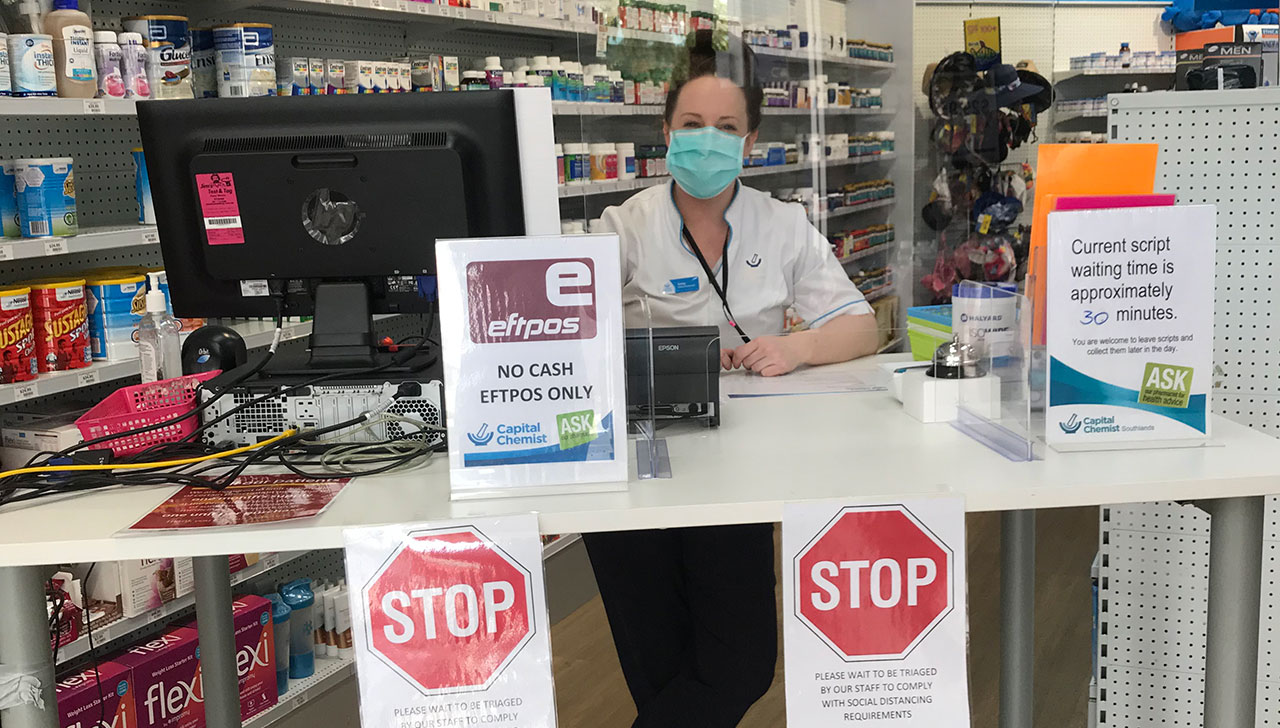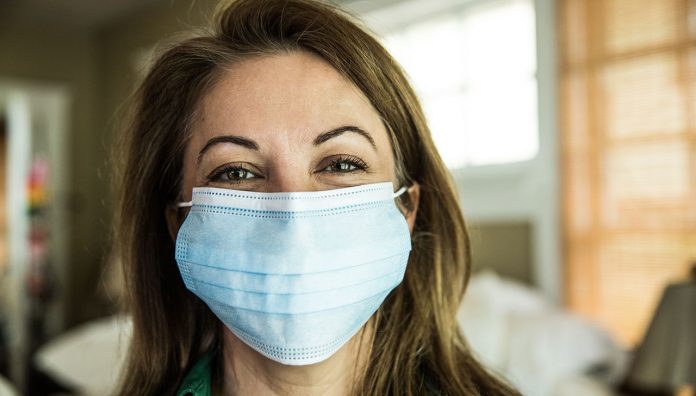Victorian residents living in areas with Stage 3 restrictions have been advised to wear face masks when leaving their homes, as COVID-19 cases continue to rise in the state.
The Victorian Chief Health Officer Professor Brett Sutton said on Friday that adults living in greater Melbourne and the Mitchell Shire should wear a cloth or surgical face mask if it was necessary to leave home. This does not apply to children, people with breathing difficulties or those who have physical conditions that make it difficult to wear a mask.
While not mandatory, Prof Sutton urged Victorians to wear the protective equipment when visiting areas where it would be difficult to keep 1.5 metres apart – such as in shopping centres and on public transport.
PSA National President Associate Professor Chris Freeman said this advice would logically extend to community pharmacies and other primary health providers.
‘I recommend pharmacists and pharmacy staff residing and working in affected areas wear masks where 1.5-metre physical distancing between other people, including other staff, is difficult and cannot be guaranteed,’ he said.
‘The routine use of masks by pharmacists and pharmacy staff not residing or practising in greater Melbourne and Mitchell Shire, where community transmission is currently low, is not actively recommended at this time, but not contraindicated.’
Physical distancing remains the best way to prevent transmission. Pharmacists have previously reported implementing measures such as:
- having obvious signage asking people to remain 1.5 metres apart
- installing perspex screens at the dispensary and checkout
- placing markers on the floor indicating where people should stand.

Some, like Victorian pharmacist and co-owner of Capital Chemist Southlands Louise McLean MPS, have also implemented a triage desk at the front of the pharmacy, complete with a computer with access to the dispensing program, a point-of-sale system and printers, which mean customers don’t need to venture further inside the store.
‘We ensure we have a pharmacist and a pharmacy assistant at the triage desk and front door at all times to greet customers outside and as soon as they enter the store,’ she told Australian Pharmacist earlier this year.
‘Prescriptions are dropped off at the triage desk and the customer is sent a text message when their script is ready for collection … Over-the-counter item requests are managed by the floor staff with the items brought to the front.’
Encouraging the use of home delivery services is another way pharmacists can help support their patients.
Cameron Walls MPS, Pharmacist Manager at United Chemists Wodonga on the Victorian side of the New South Wales (NSW)–Victoria border, said he had spent time communicating with patients about how the pharmacy could assist them to isolate as case numbers in Victoria increased.
‘We’ve extended our local delivery service from once a week to every day, providing contact-free deliveries and processing payments over the phone,’ he told AP.
‘We’ve had a lot more contact with the local GP clinics, coordinating the continued supply of their medicines. We’ve been receiving large numbers of faxed and emailed prescriptions and spent a lot of time explaining all the regulation changes to GPs and other specialists.’
The closure of the state border was an additional challenge, Mr Walls said.‘Our customers and staff come from both sides of the border. Even though we have two cities on the border with two different postcodes, we operate as one community,’ he said.
‘The hospital and public health systems are split across the border, and I’ve already heard of doctors, dentists and specialist appointments being cancelled … due to the border closures.’
Across the border
Australia has recorded a total of 10,251 COVID-19 cases, including 7,835 who have recovered and 108 deaths.
In the last 7 days there have been 892 locally acquired cases, compared to just 64 acquired overseas.
Victoria has the highest number of cases, with 4,224, including 270 which were recorded in the last 24 hours.
Meanwhile, there were 13 new cases diagnosed in NSW in the last 24 hours, bringing the total to 3,328. Three of the new cases were returned travellers in hotel quarantine, with the remaining 10 associated with the Crossroads Hotel in Casula, in south-west Sydney.
There are 34 cases associated with the Crossroads Hotel cluster, with contact tracing continuing to ascertain who attended the hotel from 3–10 July. These people are advised to immediately self-isolate, and get tested for the novel coronavirus even if they have no symptoms.
According to NSW Health, ‘anyone feeling unwell – even with the mildest of symptoms such as a runny nose or scratchy throat – is urged to seek testing and self-isolate’.
‘We are at a critical point in the fight to contain COVID-19. It is absolutely essential the community works together to limit the spread of the virus, by always maintaining good hand hygiene, adhering to physical distancing rules whenever possible and getting tested whenever symptoms occur, however mild.’



 Professor Margie Danchin[/caption]
Professor Margie Danchin[/caption]

 Dr Peter Tenni[/caption]
Dr Peter Tenni[/caption]
 How should we deprescribe gabapentinoids, according to the Maudsley Deprescribing Guidelines[/caption]
How should we deprescribe gabapentinoids, according to the Maudsley Deprescribing Guidelines[/caption]



 Pharmacists have always prescribed, but they have the potential to prescribe much more
Pharmacists have always prescribed, but they have the potential to prescribe much more




